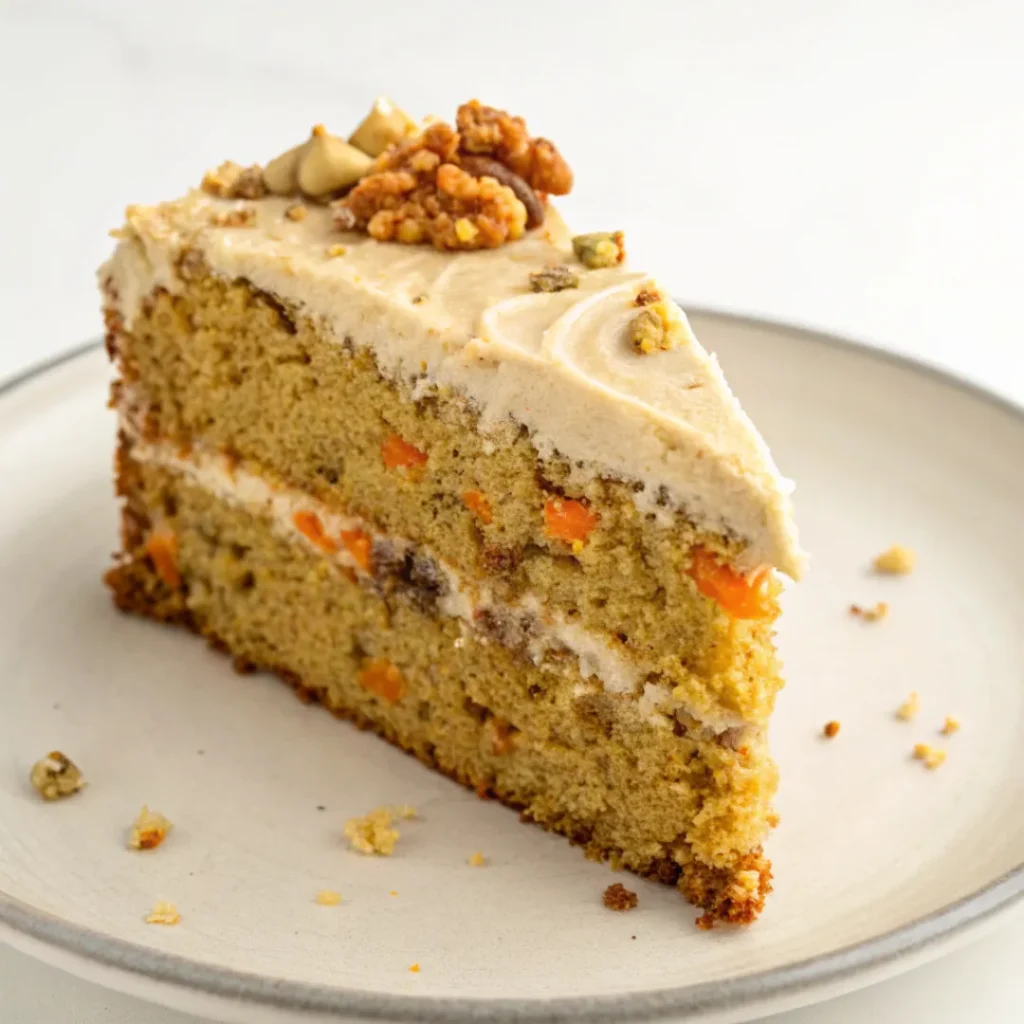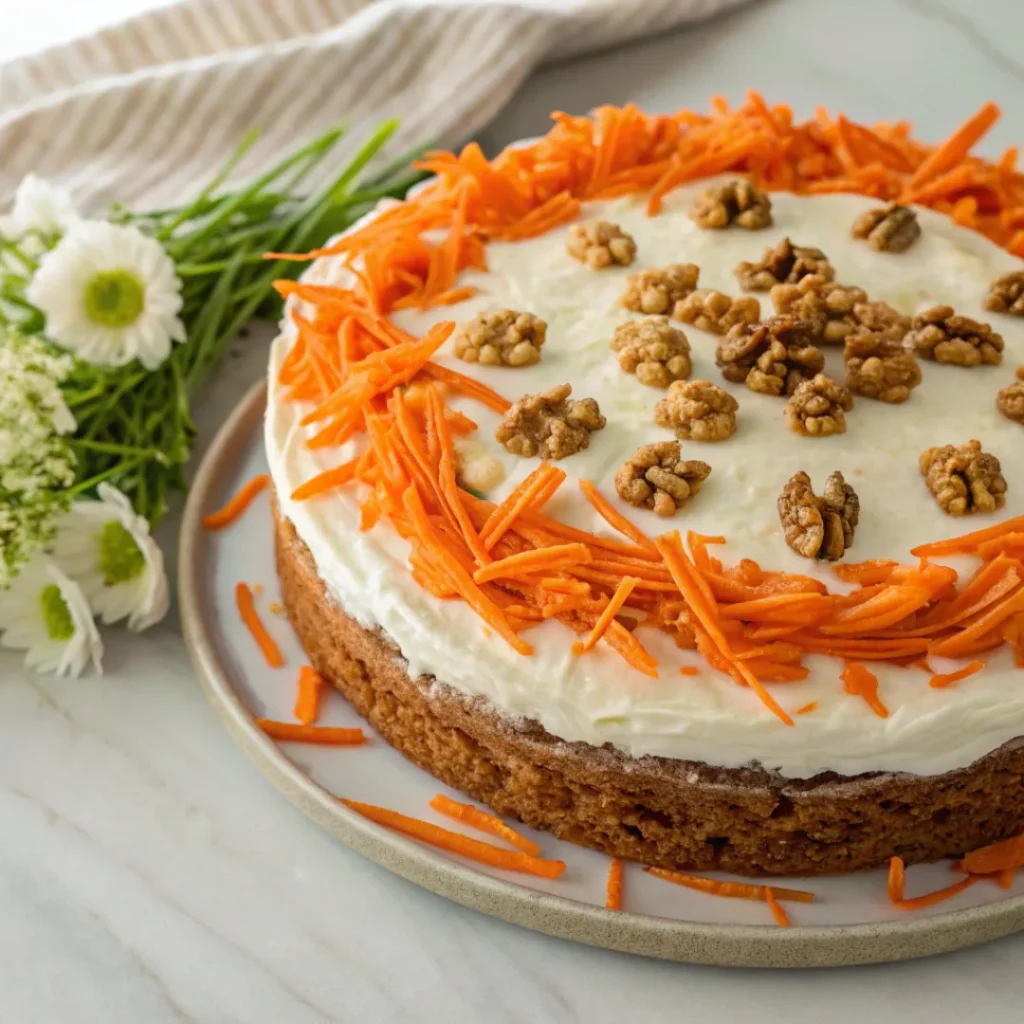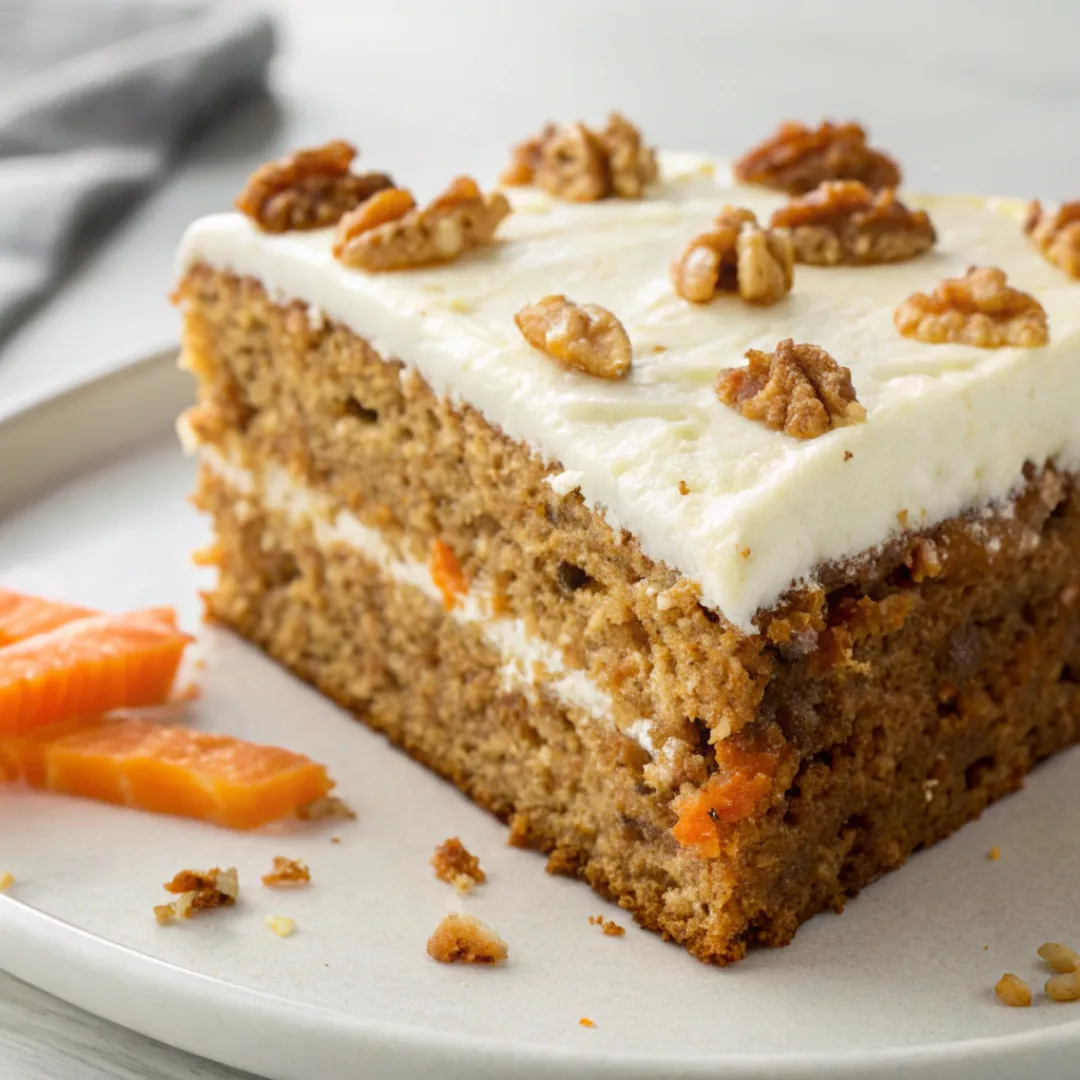Carrot cake is a dessert beloved by many for its rich, moist texture and the unique combination of flavors it offers. The popularity of carrot cake has spanned generations, becoming a staple at birthday parties, family gatherings, holidays, and even high-end bakeries. But why is carrot cake so popular? What makes it stand out from other cakes, and why has it remained a favorite over the years? In this article, we’ll explore the history of carrot cake, its unique ingredients, its versatility, and the many reasons why it continues to be a favorite for so many people.
A Unique Use of Vegetables in Desserts
One of the most interesting aspects of carrot cake is its use of a vegetable as the primary ingredient. While vegetables are common in savory dishes, they are less frequently found in sweet baked goods. Carrots, however, are an exception due to their natural sweetness and moisture content.
The inclusion of carrots in a cake adds a unique texture and flavor that sets carrot cake apart from other desserts. The shredded carrots blend seamlessly into the batter, making the cake moist and rich without overpowering the other flavors. This unexpected use of a vegetable in a dessert creates intrigue and makes carrot cake a memorable dish for many.
The Perfect Balance of Flavors
One of the key reasons why carrot cake is so popular is the balance of flavors it offers. Carrot cake is known for its warmth and spice, often featuring ingredients like cinnamon, nutmeg, and ginger. These spices give the cake a deep, comforting flavor that is both aromatic and delicious.
Natural Sweetness
While the cake is sweet, it doesn’t rely solely on sugar for its flavor. The natural sweetness from the carrots adds depth and complexity. Carrots, when baked, release their natural sugars, which caramelize and create a subtle sweetness that pairs perfectly with the spices in the cake.
Spiced Flavor Profile
The spices in carrot cake contribute to its distinctive taste. The combination of cinnamon, nutmeg, and ginger adds warmth and complexity to the cake, making it perfect for autumn and winter seasons, although it’s enjoyed year-round.
Cream Cheese Frosting
Carrot cake’s flavor is further elevated by the addition of cream cheese frosting, which adds a tangy contrast to the cake’s sweetness. This balance between the rich cake and the slightly tart frosting creates a flavor profile that appeals to a wide range of palates.
Find the perfect cream cheese frosting recipe to take your carrot cake to the next level.

Moist Texture and Longevity
Carrot cake is renowned for its moist, dense texture, which is one of its defining features. Unlike lighter cakes such as sponge cakes or chiffon cakes, carrot cake is hearty and substantial, yet it remains soft and tender.
Moisture from Carrots
The grated carrots in the batter release moisture as they bake, keeping the cake soft and moist. This is why carrot cake doesn’t dry out as quickly as other cakes, making it an ideal choice for occasions when the cake needs to be made in advance.
Longevity
Carrot cake can last several days without losing its texture or flavor, making it a great option for leftovers. The use of oil instead of butter in many recipes also contributes to its longer shelf life, as oil-based cakes tend to stay moist longer than butter-based cakes.
The Irresistible Cream Cheese Frosting
One of the standout features of carrot cake is the cream cheese frosting, which is a key component of its popularity. The frosting provides a smooth, creamy texture and a tangy flavor that contrasts beautifully with the sweet, spiced cake.
Why Cream Cheese?
Cream cheese frosting has a unique ability to complement the earthy sweetness of the carrots and the spices in the cake. Its slight tang cuts through the richness of the cake, creating a perfect balance between sweet and savory.
Customizable Frosting
While classic cream cheese frosting is the most popular choice, it can also be customized with additional flavors such as vanilla, lemon, or cinnamon to further enhance the cake’s flavor.
Versatility in Add-ins and Flavors
Carrot cake’s versatility is another reason for its enduring popularity. Bakers can experiment with a wide range of add-ins and flavor combinations, making each carrot cake recipe unique.
Common Add-ins
Carrot cake is often enhanced with ingredients such as raisins, chopped nuts (especially walnuts or pecans), and pineapple. These add-ins provide texture and additional flavor, making the cake even more interesting and enjoyable to eat.
Spices and Variations
Bakers can also play with the spice levels in carrot cake. Some prefer a heavily spiced cake, while others may opt for a subtler flavor. Cinnamon, nutmeg, ginger, and even cloves can be adjusted to suit personal taste, making carrot cake a versatile dessert that can be customized in endless ways.
Gluten-Free and Vegan Variations
With the rise of dietary preferences and restrictions, carrot cake has adapted to accommodate gluten-free and vegan diets. The use of almond flour, coconut flour, or gluten-free flour blends allows those with gluten sensitivities to enjoy this classic dessert. Additionally, plant-based cream cheese and non-dairy alternatives make it easy to create vegan versions of carrot cake without compromising on flavor.
Healthier Perception
Though carrot cake is undoubtedly indulgent, it is often perceived as a healthier alternative to other cakes due to the inclusion of carrots, nuts, and fruit.
Carrots as a Health Boost
Carrots are packed with vitamins and minerals, particularly vitamin A and beta-carotene. While the amount of carrots in a cake may not be enough to meet your daily nutrient requirements, their presence gives carrot cake a health-conscious appeal.
Use of Oil Instead of Butter
Many carrot cake recipes use oil instead of butter, which not only enhances the moist texture of the cake but is also seen as a healthier choice. Oils like canola, vegetable, or even olive oil are often used in place of butter, lowering the saturated fat content and making the cake a slightly healthier option.
Whole Ingredients
Carrot cake is often viewed as a “whole” dessert, with natural ingredients like carrots, nuts, and sometimes whole wheat flour. These ingredients contribute to the perception of carrot cake being a better choice compared to other more decadent desserts.
Carrot Cake’s Enduring Popularity in Modern Baking
Despite the rise of new dessert trends, carrot cake has remained a popular choice in both home kitchens and bakeries. Its classic flavor profile and adaptability have helped it stand the test of time.
Popular in Cafes and Bakeries
Carrot cake is a staple offering in many cafes and bakeries, where it’s often enjoyed with a cup of coffee or tea. Its ability to pair well with a variety of beverages makes it a favorite for afternoon snacks or desserts.
Trending in Gourmet and Health-Conscious Markets
In recent years, there has been a rise in gourmet and health-conscious versions of carrot cake, including gluten-free, vegan, and refined-sugar-free options. These adaptations have ensured carrot cake’s place in the modern dessert landscape, appealing to a broader audience while staying true to its roots.

Frequently Asked Questions
What is the history of carrot cake?
Carrot cake originated in Europe, where carrots were used as a substitute for sugar during times of scarcity, particularly in the Middle Ages. The modern version of carrot cake became popular in the mid-20th century.
Why is carrot cake so moist?
Carrot cake is moist due to the use of grated carrots, which release moisture as they bake. The use of oil instead of butter also helps retain moisture in the cake.
What pairs well with carrot cake?
Carrot cake pairs well with cream cheese frosting, spiced flavors like cinnamon and ginger, and add-ins such as raisins, nuts, and pineapple.
Can carrot cake be made gluten-free or vegan?
Yes, carrot cake can be made gluten-free or vegan by using alternative flours and plant-based ingredients. Many bakeries offer these variations to accommodate dietary preferences.
Conclusion
Carrot cake’s popularity can be attributed to its perfect balance of flavors, unique use of carrots, and its dense, moist texture. The cake’s versatility in add-ins and variations, as well as its association with health-conscious eating and festive occasions, ensures its enduring appeal. Whether enjoyed as a simple dessert or dressed up with cream cheese frosting and nuts, carrot cake remains a timeless favorite that continues to captivate dessert lovers around the world.

